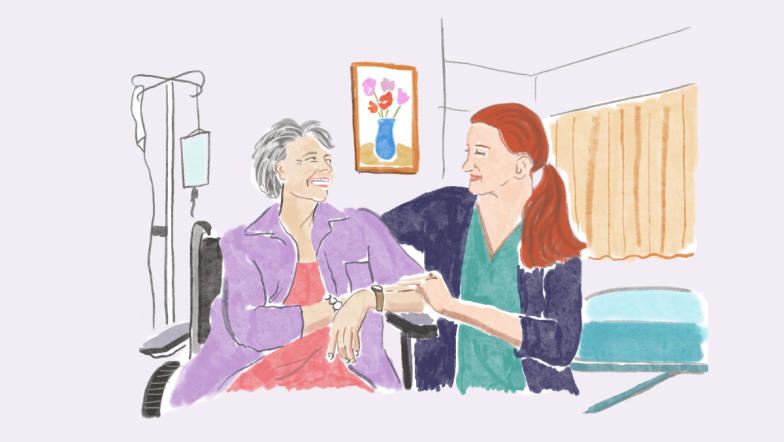Older, isolated and at greater risk
7 Apr 2020
Wide sweeping changes as a consequence of the COVID-19 outbreak are putting older Australians at risk of much more than just the virus.
We know from our work that crisis, poverty and disadvantage can increase the likelihood of abuse. While older Australians are already at higher risk of experiencing serious health complications due to COVID-19, the sweeping changes made in response to the pandemic are leaving them isolated and confused in the inertia.
People are separated from community, support workers and family more than ever before, and are often trapped inside their homes with their abusers. Current lock down restrictions also mean older Australians aren’t able to attend their regular appointments to give them an opportunity to seek help when they need it. These limitations are made worse for people who are hard of hearing, Deaf, or have low literacy skills.
What’s clearly missing is an effective intervention for older Australians during the COVID-19 pandemic and beyond. Researchers estimate that 14% of our ageing population are experiencing elder abuse. With increased social isolation comes the threat of an even bigger spike going undetected and older people left unable to access specialist legal help when they need it most.
As one of the few expert legal services providing legal help to older Australians and the first to integrate Telehealth videoconferencing into our services, we’re calling for more resources help stop this crisis. We take an integrated approach by working closely with health partners like St Vincents Health Network Sydney, St Vincent’s Hospital Melbourne, Uniting War Memorial Hospital in Waverley, Alfred Hospital and cohealth. These partnerships help us offer legal interventions to improve our clients’ quality of life and prevent elder abuse from occurring. Our lawyers continue to provide remote services to our existing clients using phone, email and telehealth despite the lockdowns but demand continues to constrain already stretched resources.
The current growing pressure on adult children facing financial, housing and job insecurity is forcing many to rely on their parents at an unprecedented level; some are projecting the stress and pressure they are feeling onto their parents. We’re witnessing how this pressure comes at a significant cost to the older Australians who we support.
Jane* (85) is one of our longstanding clients who lives at home with her disabled son Conor. When she was first referred to us by her social worker at our health partner, she had already been experiencing financial, emotional and verbal abuse at the hands of her other son Paul. Over a long period Paul had pressured Jane to withdraw her full pension each fortnight, and would then steal the cash and spend it on himself. We worked with Jane to develop preventative strategies, such as only withdrawing the cash that she needed from time to time.
However, the announcement of the $750.00 Economic Support Payment left people like Jane vulnerable to further abuse. Paul once again coerced Jane to withdraw the full payment, arguing that she needed to avoid risking her health and not leave home during the Covid-19 restrictions. This was ultimately a tactic by Paul to steal the money from Jane and cause her additional financial stress and other related legal issues. Jane is struggling to make ends meet but doesn’t want to add more pressure on her son during COVID-19 by reporting his actions.
Nora* (78) was referred to us by our health partner after they identified that she required legal support to prevent further escalation of violence against her. Nora had been experiencing abuse from her only son Darren for a number of years and had a safe contact intervention order in place. Nora had been trying to maintain an amicable relationship with Darren in order to not lose access to her grandkids, but it proved difficult with his escalating violence and financial coercion.
Darren eventually assaulted Nora so severely that she ended up hospitalised. Our lawyers worked with the police to take out a full Intervention Order against him and helped Nora regain some semblance of safety by arranging to change her locks, phone numbers and report any breaches of the Intervention Order. While we continue to support Nora, Darren is in prison on remand and awaiting his trial that has been rescheduled to 2021 due to COVID-19.
If global experiences of the virus serve as any warning, we’ll be seeing even more cases of elder abuse and a community need that could go undetected. We’re already supporting our existing clients face new challenges, while our health justice partnerships are referring us to people who have multiple legal problems compounded by COVID-19. Although this is forcing us to innovate, we are ultimately limited by resources to properly prevent and resolve these cycles of abuse and harm. Our health justice partnerships prove that our integrated approach and long-standing relationships can help identify these issues and intervene. All we need now is the resources to meet and adapt to growing demand.
*Names have been changed for privacy reasons
Read more about our COVID-19 response here


